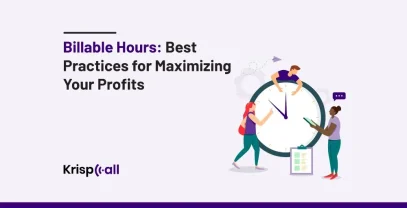Do you want to start a business in the UK but need help with how to do it? Don’t worry! 😟
Starting a business 🏢 in the UK can be rewarding for both residents and foreigners. With a user-friendly environment, the UK offers many opportunities for entrepreneurs. But this process looks complicated without a clear roadmap.
This article will give you an overview of the step-by-step process for starting a business in the UK, including choosing a legal structure to register your business, creating a business plan, conducting market research, and many more.
Whether you are a sole trader🧑💼, partnered with someone, or a limited company, this guide will help you navigate these processes and set you on the path to success.
Let’s get started!
🔑 Key Highlights
- Regardless of Nationality, anyone can start a business in the UK by registering with HMRC.
- Businesses differ based on their legal structure, such as sole traders, partnerships, limited companies, and LLP.
- Develop a roadmap and set goals before starting your business journey.
- Before starting a business in the UK, consider the legal structure, a good business plan, conducting market research, etc.
In The UK, Who Can Start A Business?
Anyone, regardless of nationality, can start a business in the UK. While foreign citizens are not restricted in doing so, they must or need to fulfill some guidelines.

Most of these are subject to legal requirements, such as registering with HMRC (HM Revenue and Customs) and Companies House (if necessary) and obtaining the required license or permit before starting a business.
Also, you must fulfill other requirements, such as submitting a unique business name and business bank account and understanding tax obligations and potential insurance needs.
What Are The Different Business Types In The UK?
In the UK, you have various options based on the legal structure. The type of business you want to establish in the UK should be based on the structure of your business.
However, choose your business structure carefully because it will impact your business journey. The following are different types of businesses based on legal structure:
Sole Trader
As a sole trader, you are responsible for all the profits and losses of your business. You’ll have to operate your firm as an employee yourself. All the profits you make after taxes are solely your profits. But you are fully responsible for all the company losses as well.
As a sole business, you must follow specific guidelines. They are:
- Keep a record of the revenue and expenses.
- File a document showing all incoming and outgoing of your business.
- Pay income tax.
- Also, pay class 2 and class 4 national insurance.
Partnership
A partnership is when two or more individuals jointly run a business. As a partnership business, you must agree upon a formal agreement describing earnings, losses, liabilities, and ownership, which will be split between partners.
It has the same duties as a sole trader, except you have one or more partners. Also, there are some things you need to know before forming a company partnership. They are:
- Decide on a company name and a partner.
- HMRC registration
Limited Companies
Limited companies are private corporations with some shareholders who appoint a director as its administrator. The company’s finances are separate from those of the founder. That means the corporation must pay corporate taxes and have a bank account.
In particular cases, only one person who works for the company may register as a limited company by appointing himself or herself to the position of director.
As a director, that person has some obligations, which are listed below:
- Track all activities of the company. Also, make a note of all changes.
- Ensure that the company’s accounts and tax returns are documented.
- Corporate tax must be paid.
Limited Liability Partnership (LLP)
LLP is forming a business that involves at least two corporate affiliates. These members are responsible for registering the company with HMRC, keeping accounting records, etc.
All the members pay tax on their share of profits, but if the company can’t do so, they are not obligated to pay from their pocket. As a member/partner, you have some duties. They are:
- Choosing a company name
- Register the business with HMRC
- Keeping accounting records
- An agreement defining the LLP’s operation.
- Sending yearly accounts to companies’ house
Learn more with this 👉Business Process: A Comprehensive Guide
12 Steps To Start A Business In The UK
Starting a business is complicated, especially when you are unfamiliar with the UK guidelines. However, you can get help from plenty of guidelines on the government’s website and various business support organizations.
Following the proper steps in these guidelines, you can establish and run a business in the UK. Here are guidelines for you to start your journey:
1. Business Idea
When starting a business, you must have a solid business plan. There are endless possibilities for how you want to set up your business, but you have to be precise.
You have to check if your business plan is viable.
You must understand whether this business idea is in demand on the market and whether it can grow in the future. Also, one important thing to understand is whether you fully believe in this business plan and have the knowledge/skillset for it. If not, your business might fall quickly.
2. Business Plan
The next step is to map out your business plan. Your plan must be comprehensive and cover different business areas, such as short—and long-term goals, marketing strategy, financial projections, target market, competition scope, and operational details.
You must always have a plan for your business to grow, giving you a clear vision. But dont worry, it’s not mandatory to follow these plans. They can change as you start your business journey.
3. Market Research
After creating your business plan, the next step is to conduct thorough market research, which is also essential. This typically includes things like gathering as much information as possible about your target audience, competitors, and customer needs.
This step is necessary to be done with perfection as it s for validating your idea, positioning your company in the market, and developing the best marketing strategies. So, take your time to get a good grasp of the market to significantly increase your chances of success.
4. Legal Structure
Once you are done with your research, you must (next) decide on your company’s legal structure. This part can prove to be a bit complex if you try to do it on your own, so consulting a lawyer is a good idea.
Choosing the proper structure is essential for the future of your business. Each option that is available has its own pros and cons, so you’ll want to weigh those based on your needs. Also the same lawyer can also help you determine the best structure for your company.
5. Register Your Business
After you have the structure laid out, the next step is to actually register your business with the government to legally recognize your company. It’s done on the gov.uk/set-up-business site, and it takes under 24 hours.
Once registered, you get licenses to start your business. To do this, you need to first choose a business name that is not already in use and pay the correct taxes at the right time. Depending on your business structure, you may need to incorporate your company through Companies House.
6. Financing
Next, assess your short—and long-term needs and financing options. Personal savings often cover initial costs, but to get started, consider financing through loans or investments from trusted third parties.
So, the best thing to do is to create a financial plan to manage start-up costs, operating expenses, and cash flow effectively. Additionally, a business bank account also needs to be set up to separate personal and business finances, which is crucial for tracking business expenses and budgets.
7. Location And Infrastructure
For a physical store, research where your target audience is likely to be and choose that location. You must also consider the leasing costs and additional expenses such as electricity and water. These costs can add up, so carefully include them in your business plan.
You can operate online or in physical locations such as offices. You can also choose a home office, shared office, or entire office rental for Office space options. But carefully choose these options because leases and permits can impact your finances.
8. Branding And Marketing
Research the market carefully to determine your brand identity. Think about how you can approach your target audience. Also, choose a suitable approach for branding and marketing, such as doing it yourself or working with a freelance marketing expert.
You can choose other approaches, such as hiring an in-house marketing manager or working with a marketing agency. Evaluate which approach best fits your finances and business goals.
9. Staffing And Human Resources (HR)
If you are not hiring, factoring it into your business plan is essential. Determining budgets for salaries and HR procedures will make onboarding smoother—HR procedures like hiring, training, payroll, compensation packages, and legal compliance.
You must research industry standards to make realistic offers when hiring along with HR matters. And if you plan to hire someone, look up salary standards, benefits packages, etc., and compare them to your company’s capacity. Map out all this and start hiring.
10. Technology And System Setup
You must determine the hardware and software needed to run your business effectively. This can include computers/laptops, HR management software, or your phone system. You can then begin investing in and setting up these products.
For example, if a company needs an online medium to communicate with its customers and employees, it can invest in cloud phone systems like KrispCall. These systems will help the company communicate with its customers globally through features like global calls, SMS, and voicemails. KrispCall also provides UK virtual numbers for businesses.
11. Insurance
You must review your business’s insurance needs and factor in general liability, property needs, and workers’ compensation. Also, consult an insurance expert to ensure you get the appropriate coverage for your business.
This will help you mitigate any potential risk in your industry. After all this, choose an insurance company that aligns with your financial plan and business needs.
12. Compliance And Regulations
Lastly, familiarize yourself with relevant laws, regulations, and compliance requirements specific to your industry. Then, to avoid complications in the future, ensure commitment to taxation, licensing, data protection, and health and safety regulations.
Follow all the applicable laws and regulations to prevent future problems. Otherwise, problems can become complex and complicated to solve. This is particularly crucial in the case of physical stores because various risks are associated with them.
📖Also read: How to Set up a Virtual Call Center from Home
Things To Consider Before Opening Business In The UK
Before starting a business, you need to consider different factors. These factors will help you understand the legal requirements and avoid any issues in the future.
Here are some things to consider before opening a business in the UK:
- Legal Structure: Go with the legal structure that best fits your business. Each structure has different requirements, so choose the one that meets your needs and goals. Some appropriate legal structures are sole trader, partnership, LLP, or limited company.
- Registration Of Business: Registering your business with HMRC(HM Revenue and Customs) and, if necessary, Companies House is crucial. This process ensures compliance with tax regulations and legal requirements.
- Business Name: Another thing to consider is choosing for your business is unique and available. Here, you also need to check its availability with the Company House and Intellectual Property Office. It helps to avoid legal issues in the future.
- Tax And National Insurance: Being aware of your tax obligation is crucial. You can’t register with HM Revenue and Customs(HMRC) if you can’t meet tax regulations. Also, It is necessary to understand national insurance obligations.
- Business Bank Account: If you are starting a new business, you need to create a new business bank account for your business finances. This will help clarify transactions, simplify accounting, and maintain precise records for tax purposes.
- Premises And Licenses: You also need to find out whether you need a permit or license to operate your business to avoid legal issues and penalties. For this, you should check with the local authorities of the UK to determine what permits and licenses are needed.
- Business Plan: Creating a business plan to organize your business and set goals is also needed. Simply because, a good business plan helps with a roadmap, marketing strategies, and financial projections.
- Market Research: Conduct market research to identify potential opportunities and challenges for a business. First, understand a market to identify your target audience and gaps in the market. This is crucial to gaining a competitive edge.
Closing Thoughts
Starting a business in the UK requires proper planning and research on what steps to take and which structure to follow. And if done properly, it offers immense potential for business leaders of all types to build successful ventures and thrive in the digital marketplace.
That said, writing a business plan and conducting proper market research are just a few essential things to consider to ensure your business’s financial success. You also need to properly brand and market your product.
And by following the steps outlined in this guide and staying committed to your vision, you can turn your online business dreams into reality and achieve sustainable growth and prosperity.
FAQs
How can I start a nonprofit organization in the United Kingdom?
You can start a nonprofit organization in the United Kingdom by following the steps below:
- Research Feasibility and Need
- Understand UK Nonprofit Laws
- Build a Solid Foundation
- Create Governing Documents
- Register Your Charity
- Get an EIN and Open a Bank Account
- Appoint a Board of Directors
- Start Fundraising and Operations.
Can I Start a business in the UK without a License?
Yes, you can start a business in the UK without a License for most types of business. However, depending on the type of business, you may need to register with HMRC.
What is the best business to start in the United Kingdom?
The best business to start in the United Kingdom depends on factors like your idea, plans, and the market demand. Some easy-to-start businesses in the UK are e-commerce stores, digital marketing agencies, food and beverage businesses, etc.
How can I start a business in the UK with no money?
Starting a business without money in the UK is challenging, but you can achieve that through resourcefulness, creativity, and careful planning. Follow these steps to begin a business in the UK without initial investment:
- Choose a business idea wisely
- Utilize your Skills and resources
- Start small
- Create a good business plan
- Build an online presence
- Utilize free tools and resources.
- Seek funding
- Build network and connection
Do I need a Business Bank Account to set up business in the UK?
Although a business banking account is not legally required, you should set one up for financial clarity, professionalism, and tax reasons.
Can a foreigner start a local business in the UK?
Yes, a foreigner can start a local business in the UK. The UK has a business-friendly environment for foreigners. However, they must follow specific guidelines in order to open a company in the UK.
These guidelines are deciding on a legal structure, registering your business, choosing a unique business name and bank account, obtaining premises and licenses, writing a business plan, conducting market research, etc.





